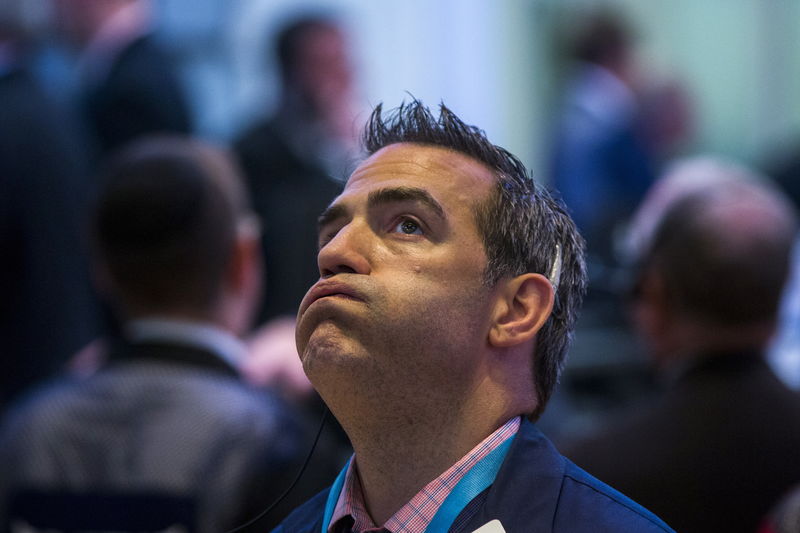By Yasin Ebrahim
Investing.com – Wall Street fell on Tuesday, as a plunge in oil prices weighed on investor sentiment, even as Congress readies a $500 billion coronavirus aid package to further support the economy.
The Dow fell 2.67%, or 631 points, theS&P 500 slipped 3,07% and the Nasdaq Composite fell 3.48%.
Worries over a storage squeeze amid a collapsed in fuel demand sent oil prices sharply lower for the second day in a row.
"The EIA reported in October that storage capacity was around 426.5 (million barrels) and was 55% full. Using inventory since then, we calculate that capacity utilization has risen to over 81%," ANZ Research said in a note.
The plunge in energy prices was exacerbated after Railroad Commission of Texas, which oversees oil and gas companies, delayed a vote on mandated production cuts demanded by midsized shale oil drillers.
Despite the plunge in oil prices of more than 40%, energy stocks outperformed the broader market, ending the day down 1.4%.
The selloff in oil stoked worries about loan defaults, pressuring regional banks, which typically carry a larger energy-lending portfolio than that of Wall Street banks.
The Settle KBW Nasdaq Regional Banking Index fell more than 2.5%.
Tech stocks led the day of selling on Wall Street with FANG and chip stocks bearing the brunt.
Facebook (NASDAQ:FB) fell 4.2%, Amazon.com (NASDAQ:AMZN) fell 1.6% and Apple (NASDAQ:AAPL) was down 3.08%, while Netflix (NASDAQ:NFLX) ended down about 0.77%.
Also weighing on tech, IBM (NYSE:IBM) fell 3% after the company pulled guidance and reported quarterly revenue that missed expectations due to the impact from the coronavirus pandemic.
On the economic data front, the decline in existing home sales in March was not as bad as many had feared, but the data was largely shrugged off as it did not reflect the full extent of the lockdown measures, which began in mid-March.
But the lockdown measures in some states are nearing an end, with Georgia and South Carolina set to lift lockdown restrictions this week.
News that Congress reached a tentative agreement Tuesday with President Donald Trump on a nearly $500 billion coronavirus relief bill that would top up the $349 billion small business rescue program failed to lift sentiment.
